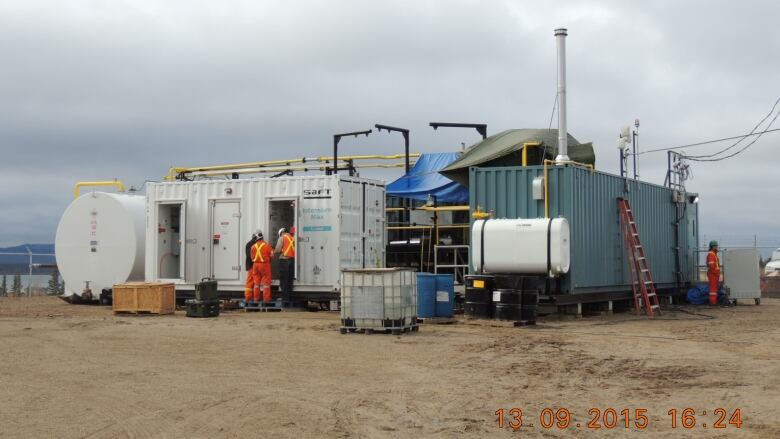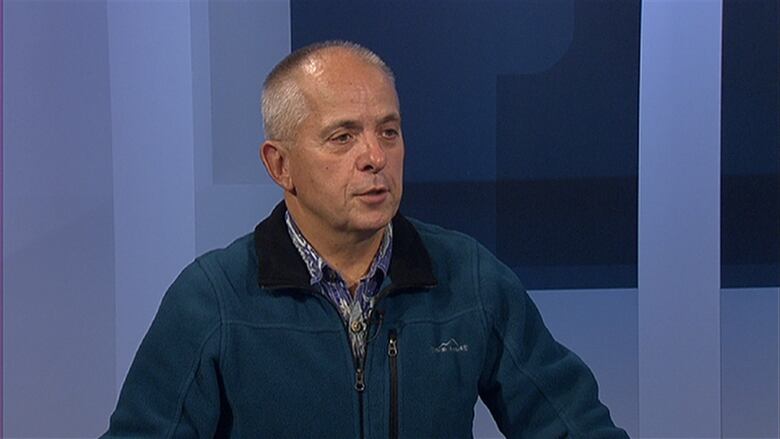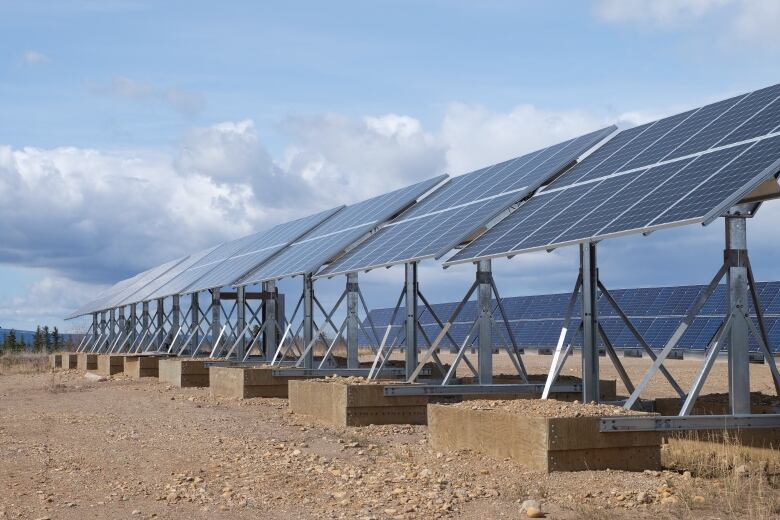Hybrid micro-grids could cut N.W.T.'s diesel dependence by half, report says
'We have demonstrated how these can work very well,' says former finance minister

It will cost between $300 million and $780 million to cut the Northwest Territories' use of diesel to generate electricity in half, according to a new report co-authored by former finance minister Michael Miltenberger.
The report, The Northern Way, outlines a five-year plan to build hybrid micro-grids in diesel powered communities. The micro-grids would combinesolar, windand diesel electricity generation.
The report also highlightsa need for the territorial government to act quickly given the federal government's incoming carbon tax in 2018, and the territories' aging power plants.
"Just about all of the thermal community diesel generators are very elderly and are going to be needed to be replaced. They are going to have to spend millions upon millions to do that anyway. We are suggesting, don't just replace diesel," Miltenberger said.

The reportestimates the federal carbon tax could generate $225 million of revenue in the territory over five years money that will flow back to the territorial government and may be used at its discretion.
"This is not bad news. This is an opportunity to finally make the break and move into the 21st century with renewables and cut our own cost of living," Miltenberger said.
The more affordable option
Milenbergersaid building hybridmicro-grids will bemore affordable thanmega-projectslikeexpanding capacity oftheTaltsonhydro system. The report pinsexpansion of thatsystemto 200 megawattsat about $2.2 billion.
Miltenberger also said the federal government's commitment to removing subsidies on fossil fuels will help make solar and wind energy more competitive.
"We estimate, that if there was a level playing field, diesel would cost three times more than renewables now do," he said. "Everybody would be moving to... solar, windand batteries."

Miltenberger provided the report to all members of the legislative assembly. Heis hopeful it will expedite decision making in Yellowknife.
"We are offering this up to help get them moving, and not have to waste six months or two years studying things," he said.
Miltenberger points to solar arrays in Colville Lake, Fort Simpson, Lutselk'eand a wind farm at the Diavik diamond mine as examples of what can be done in the some of most difficult environments to dobusiness.
"We have demonstrated how these can work verywell both in industry and in communities," he said. "We've done it."












_(720p).jpg)


 OFFICIAL HD MUSIC VIDEO.jpg)
.jpg)



























































































